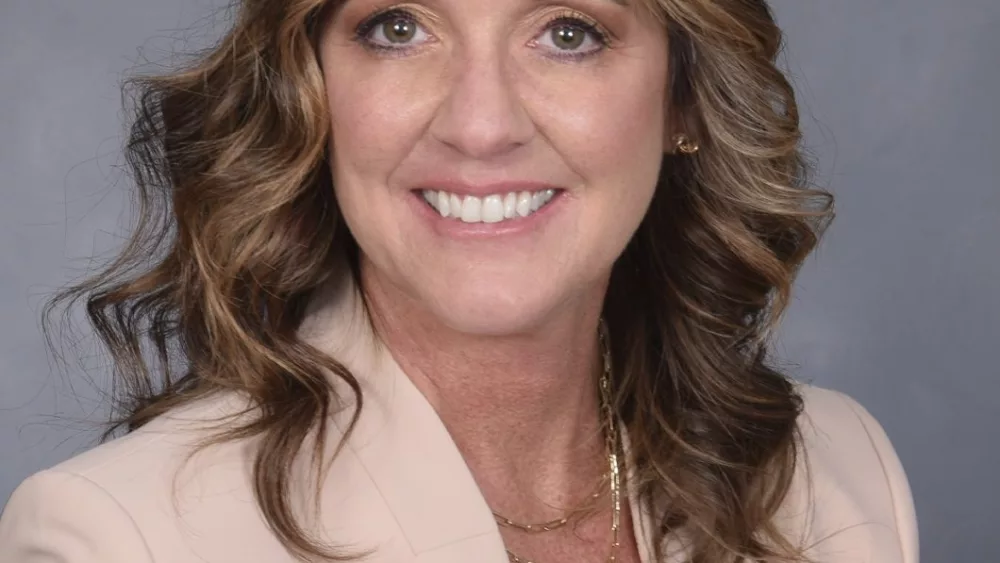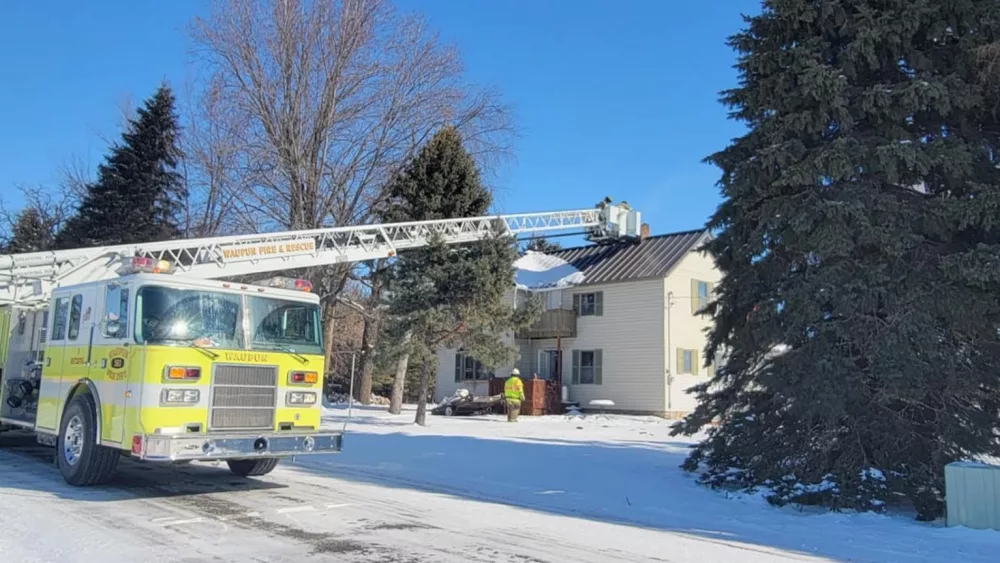
Last summer, the Dodge County Sheriff’s Office exposed major operational and systematic deficiencies within the Wisconsin Department of Corrections (DOC) as part of four death investigations that occurred within the Waupun Correctional Institution (WCI). After the investigation, the sheriff’s office and the district attorney made a collaborative decision to arrest nine DOC Employees. As part of this investigation, the Dodge County Sheriff’s Office made the following recommendations:
Renovate or Replace WCI and Green Bay Correctional Institution (GBCI) which would accomplish the following:
o Save Lives
o Provide more humane treatment of Inmates
o Provide the need for fewer correctional officers
o Provide proper monitoring technology
o Provide proper accountability measures for staff
o Provide for a safe environment for staff and inmates
The Wisconsin DOC should immediately implement the same standards as are required for all Wisconsin Jails.
o Annual Inspections to be completed on Wisconsin Prisons by State Jail Inspectors
o Reports filed by the DOC Secretary to the State Legislature each year on each of the State’s Prisons
Cameras (especially in observation cells) must be fixed to allow for proper monitoring of inmates.
Train Supervisors on Standards and Accountability
Provide training and proper supervision to staff
Serious reforms need to occur to prevent the entry of contraband into the institutions
o Body Scanner Technology
o Thorough searches of staff and visitors before entry
o Strict policies and procedures to prevent smuggling of contraband
o No contact policies with visitors to prevent the passage of contraband to inmates.
I made these recommendations publicly in hopes that it would drive change within the Department of Corrections. Yesterday, Governor Evers released a plan as part of his State of Wisconsin proposed budget to revamp the DOC. While I am pleased with parts of the proposals, I have serious concerns regarding the long-term well-being of our state with this plan. I do give credit to Governor Evers for acting regarding WCI and GBCI. It is clear that there is an understanding that these two prisons simply can’t exist in the future as they do today. The closure of GBCI and the renovation of WCI are excellent first starts as both prisons create significant safety and operational concerns for the DOC and are a huge civil liability for the State of Wisconsin. However, the closure of two maximum security prisons without adequate replacement space to house equal numbers of inmates is a dangerous proposition for the State of Wisconsin. This is a loss of 749 prison beds. GBCI, according to the 2024 annual report, has an average population well more than 749, at 999. With WCI’ s bed count of 836 inmates, which already is more than the 1,500 beds available at Stanley Correctional, the proposed prison would be taking on most of these maximum-security inmates. In addition, the entire Wisconsin DOC population already far exceeds what is currently design capacity. In a letter to the employees of the DOC, DOC leadership indicated that the current population in the Division of Adult Institutions is currently at about 23,000, well above the current design capacity of 17,600. In the next two years, DOC projects that the population will approach 24,000. This is currently 5,400 above capacity and will be 6,400 above capacity in the next two years. Yet the Governor plans to close GBCI eliminating those 749 existing beds without replacing it? That will take the inmates DOC is responsible for 6,400 above capacity in two years, up to about 7,150. I recall when I was a new sheriff, DOC administration made it very clear to me that it was their expectation that I do not exceed 85% capacity in my jail as that is a “standard” in corrections. I asked if that same standard was in place for Wisconsin DOC facilities. After my question regarding DOC, this “standard” has never been mentioned to me since. Complying by their own standard would mean that the Wisconsin DOC is currently 9,000 above the 85% “standard”. How can you possibly even consider reducing the total amount of beds available by closing a prison without replacing it knowing these numbers? The governor’s proposed solution to this is to release inmates back into the community up to four years early through the earned release program and rehabilitate people so that they do not re-offend through the expansion of treatment and workforce training. While these programs all have their place, it is my opinion through years of experience operating a correctional facility here in Dodge County, that these programs do not over time reduce the inmate population, and they certainly will not reduce the total prison population by the nearly 30% needed to get to acceptable housing, as the Governor is suggesting through his proposals. While treatment of individuals who suffer from substance use is important, it is far from a perfect science. Here in Dodge County, we have our own treatment courts that work very hard to help people beat the addiction curse. I have been honored to witness graduation ceremonies that the program has changed people’s lives, but there are unfortunately many who very much struggle with the program. While I feel it is an admirable goal to be able to reduce the prison population through treatment options, I do not see it as realistic. In addition, I also feel that providing inmates with the tools to be successful is a positive thing for their eventual success once back out in the
community. However, this program as well will never be able to provide the results that the governor is attempting to achieve. We simply can’t ignore the fact that there is a significant recidivism rate, even with these inmates who have earned release. I have seen many inmates come out of prison with a new outlook on life only to learn a short time later how quickly some have fallen back into the same trap they were in before going into prison. It is unfortunate, but a reality of the world we live in and something that is out of our control once inmates are released from prison. Additionally, research into the recidivism rate in Wisconsin shows that our rate is about 38% which is about average across the country. If you were able to reduce the recidivism rate even by 5% a year, it still would fail to cover the gap being proposed and it would also fail to account for the criminal activity that continues to occur in our state, particularly in large cities. Additionally, I many times hear the phrase “evidenced-based practices”. The problem I have found with “evidence-based practices” is that there is a significant amount of political bias built into the opinions on which the alleged “evidence-based practices” are based on. If the governor is serious
about proposing “evidence-based practices”, I believe providing examples with full details of how these alleged practices have been implemented and the positive impacts which they have had in other states. I am not aware of any “evidence-based practices” which have reduced the prison population by what is being proposed, or it would be spreading like wildfire across our country. Risking the financial and operational future of corrections on practices which has not been proven in other states could have detrimental consequences to the public safety of our state.
The governor goes on to advocate for a modification of our community corrections options (probation and parole) as he feels that there are too many revocations causing too many people on supervision to be placed back into custody. However, what I fear the governor does not recognize is that the current “Community Corrections” system is failing to hold people accountable, and it is making our community less safe already. Don’t get me wrong, our community corrections staff work very hard, and I am very proud of the work of our DOC staff, but they are severely understaffed and severely de-motivated to do their job because of the lack of support they have received from above. Many community corrections staff I have spoken with in confidence, are frustrated as the issues they face are completely out of their control. I encounter individuals on probation or parole regularly as part of my position as sheriff and when I ask them what they think about the supervision they have, they are completely honest with me in telling me they have little, if any supervision. That is even worse when you talk to people in Madison or Milwaukee. These individuals know how to game the system, they know that their agents are overworked, and they know that they can get away with pretty much whatever they want, as long as they contact their agent occasionally, many times not even in person. They are not worried about being caught. They are not worried about being drug screened. They are not worried that if they commit another crime there will be additional consequences because agents have been handcuffed in what they can do. It is clear that the policies currently in place since the Evers administration has been in place have forced the community corrections staff to be soft on crime and have put our community at risk. Again, this is not due to the community corrections staff, but soft on crime policies they must work with. Governor Evers plan of restricting revocations even further in a process that is already not working, will make the problems worse and continue to make our communities unsafe. While the Governor has put together a plan, I believe the plan is seriously flawed. We do not live in a world where we can afford to be soft on crime and soft on accountability. The culture of criminals in our country is not becoming less violent or less bold, they are becoming more violent and dangerous. The lack of respect for the law and law enforcement in our communities continues to worsen and as a result, prison populations will unfortunately continue to increase. Will this plan be good for the City of Waupun and the Village of Allouez? In the short term, yes. My agency will see less work as we estimate about 100-150 cases per year that will likely no longer be investigated in Waupun prisons, However, those problems will all be transferred to Stanely Correctional if this plan moves forward. However, I do not simply look at the short-term impacts this will have on our community, rather I look at the long-term impacts this will have on public safety in all communities around the state. We need to hold people accountable for their crimes and they need to know that if they re-offend there are serious consequences. We can’t continue to coddle them, or worse, show them that they are not being watched when they are out on “supervision”. Our DOC is broken, not because of front-line staff, but because of soft-on-crime policies and philosophies. The legislature needs to look very closely at this proposal, keep the good options, and throw out the wishful thinking. I have some recommendations for the DOC that are quite similar to the recommendations listed last summer, with some additions. I hope DOC takes them seriously.
1. Close and Replace (or renovate) GBCI without reducing beds, but rather increasing beds in the DOC system.
2. Renovate WCI as proposed.
3. Make all the other changes mentioned in the governor’s proposal as far as facility changes.
4. Add significant numbers of community corrections staff to sufficiently monitor those under supervision at a rate of 1:20 rather than 1:75 as it is today so that accountability of offenders can be properly monitored.
5. Roll back the disastrous revocation and supervision restrictions placed on community corrections so they can do their jobs and offenders know that if they continue to re-offend,
there will be consequences.
6. Increase the availability of social workers and drug dependency counselors to those with drug dependency struggles as we certainly want to address the grip of drugs on these people.
7. Annual Inspections similar to state statute required jail Inspections to be completed on DOC Prisons by state jail inspectors.
8. Reports filed by the DOC Secretary to the State Legislature each year on each of the State’s Prison inspections.
9. Cameras (especially in observation cells) must be fixed to allow for proper monitoring of inmates.
10. Train DOC supervisors and staff on Standards and Accountability.
11. Provide training and proper supervision to staff.
12. Serious reforms need to occur to prevent the entry of contraband into the institutions.
a. Body Scanner Technology
b. Thorough searches of staff and visitors before entry
c. Strict policies and procedures to prevent smuggling of contraband
d. No contact policies with visitors to prevent the passage of contraband to inmates
Sheriff Dale J. Schmidt







